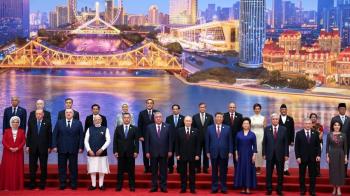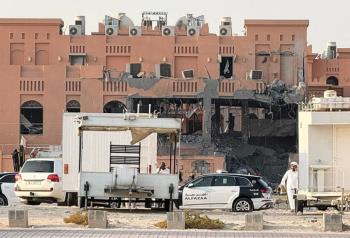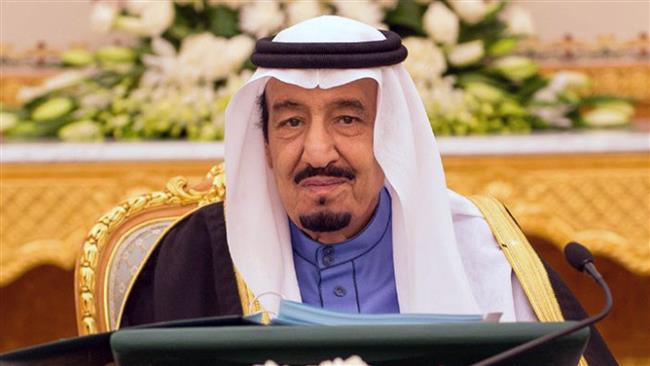Alwaght-King Salman
bin Abdul-Aziz Al Saud defined his domestic and foreign policy on Tuesday at
his first major speech since ascension to the throne after the death of his
brother King Abdullah in January, according to Press TV.
"Defense of Arab and Islamic causes, and in the first place the
right of the Palestinians to a state with Jerusalem (al-Quds) as its capital, will
remain at the top of Saudi's demands," Salman said.
Palestinians are seeking to create an independent state on the
territories of the occupied West Bank and the besieged Gaza Strip with East
al-Quds (Jerusalem) as its capital.
Israel occupied the territories during the Six-Day War of
1967. Tel Aviv conducted a
self-proclaimed withdrawal from Gaza in 2005, but its forces have been carrying
out regular deadly forays into the sliver ever since the pullout.
Saudi credits itself as one of the largest providers of aid to the
Palestinian people. Since 2002, it has
given more than USD 480 million in monetary support to the Palestinian
Authority, and has supported Palestinian refugees by contributing to the UN
Relief and Works Agency (UNRWA).
However, analysts have accused the kingdom of offering half-hearted
support for the Palestinians and questioned Riyadh’s firmness in siding with
them in the face of Israeli atrocities.
In 2004, reports citing unidentified Israeli intelligence officials
and US indicated that Saudi funding for the Palestinian resistance movement of
Hamas had been curtailed and replaced by other regional sponsors.
Following the death of Saudi's former head of state, Palestinian
President Mahmoud Abbas declared three days of mourning and traveled to the
kingdom to express his condolences.
Cushioning oil downfall
Salman also said during the address that Saudi was trying to
minimize the impact of plunging oil prices on its economy.
"The low prices witnessed by the oil market are having an effect on
the income of the kingdom. However, we are working towards minimizing the
impact on development," he said.
The international prices of oil started to decline from about USD
100 per barrel in June 2014 due to several crucial factors including excessive
production from US shale projects and sluggish global demand.
The free fall of the prices even deteriorated after the
Organization of Petroleum Exporting Countries (OPEC) decided in November 2014
not to reduce output.



























